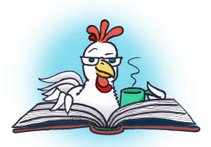My synagogue’s choir director was hosting a party that day. The
adults were talking and chatting and the kids were running around. “Volare”
played over and over on the stereo. I was twelve and bored and didn’t fit in
anywhere. I sidled over to the bookcase in the corner to see what I could find.
What I found was a slim white spine on the bottom shelf, the
title a single word in a blocky, slightly flourished font: ARIEL, [by] Sylvia
Plath. I slid it out, plonked myself down on the floor, and my universe broke
open.
To be totally, completely honest, I cannot swear to this day
that I’ve read every poem in the book. I think I’ve only ever skimmed the bee
poems all this time, for example. And yet, and yet, I think it is fair to say
that the afternoon I opened ARIEL marked a passage from childhood to…whatever
the next thing was. Not exactly adulthood or maturity. But an intimation of a
bigger world, a deeper drop, a darker dark. And an understanding that you could
write about it.
A second full disclosure: I didn’t come to it entirely cold,
that party afternoon. My mother, on the bedroom bookshelves where she kept her
paperback John Updike books and “Best Stories of the 1950s” and an early
edition of “The Catcher in the Rye” I wish I’d snagged, had a nonfiction book
about the phenomenon of suicide called THE SAVAGE GOD, by A. Alvarez, which
included a whole chapter about Plath, as a poet, a suicide, and a personal
friend of the author’s. I haven’t gone back to that book since, but the New
York Times review calls it “melodramatic” and I think, retroactively, that
sounds about right.
It was definitely melodramatic enough to be fascinating to a
literary near-adolescent who was already somewhat melodramatically inclined,
and I’m sure the mystique of Plath, as much as the poems themselves, had
something to do with my penchant, in the months after I first read them, for
gazing out the moonlit window in my pajamas and reading “Lady Lazarus” aloud
over and over until I had it memorized.
Since that time, I’ve read volumes’ worth of other words by
and about Plath: her autobiographical novel “The Bell Jar;” her letters to her
mother and to her boyfriend, then husband, then ex-husband, Ted Hughes;
theories and screeds about her life, her marriage, her drive and
competitiveness, her parenting, her feelings about Smith and English winters
and the literary scene of the 1960s, her worthiness [or not] as a feminist
icon/adversary/cautionary tale, even her opinions of near-contemporary poet Adrienne
Rich.
In high school, as a prank, I submitted her villanelle “Mad
Girl’s Love Song” to the literary magazine on whose editorial board I sat; the
consensus among my fellow editors was that it was too sentimental for
publication. By college, I’d come around to that opinion myself, and thought of
Plath’s poetry as something romantically adolescent I’d outgrown, like my
fondness for the Greek goddess Artemis; my college’s patron goddess [yes, we
had a patron goddess] was Athena, goddess of wisdom and war, the opposite of
sentimental: hard-headed, pragmatic, adult.
Now, decades older than Plath ever got to be, with my own
parenthood and failed marriage and bitter dark winters behind me, I’ve turned
around again. I mean, yes, there are things about Plath, at this remove, that
are…okay, let’s just say problematic. The imagery about Nazis and Jews reads as
cringey and appropriative to me now. There is, infamously, an actual N-bomb in
the title poem – shocking and transgressive even then, as I’m sure it was meant
to be. And, aside from any political considerations, I do not think, if we’d
met in person as contemporaries, that I would probably have liked the
fierce, blonde, competitive, ambitious, very very straight young woman who
Sylvia Plath appears to have been.
But it’s not always about liking, is it? It’s not about
whether the poems are sentimental or offensive or do they romanticize suicide
or do too many adolescent girls like them too much. It’s about whether the
poems, themselves, get at something true.
And the third truth is: I don’t know if I can ever really
know. The poems in ARIEL are so interwoven in my mind with the experience of
finding them, reading about them, reading and listening and talking and hearing
about their author, that I can’t evaluate them just for themselves, as words on
a page, as I asked my fellow high school magazine editors to do.
But I think there’s a reason that more than forty years
after that fateful party afternoon, there are whole passages I can tell you by
heart, and not just from “Lady Lazarus” :
“Love set you going like a fat gold watch.”
“I should sit on a rock off Cornwall and comb my hair./ I
should wear tiger pants, I should have an affair./ we should meet in another
life, we should meet in air,/me and you.”
“You do not do, you do not do/ Any more, black shoe/ In
which I have lived like a foot / For thirty years, poor and white / Barely
daring to breathe or Achoo.”
“What a million filaments. /The peanut-crunching crowd/ Shoves
in to see/ Them unwrap me hand and foot--/ The big strip tease.”
“I rocked shut/ As a seashell./ They had to call and call/ And
pick the worms off me like sticky pearls.”
“The water I taste is
warm and salt, like the sea/and comes from a country as far away as health.”
Those words, those images, cracked me open that day in suburban
New Jersey, circa 1979, revealing raw, sometimes ugly truths about the world and
myself that I was just starting to understand. And I’ve stayed cracked open,
more or less, for my whole life.
And maybe that’s enough.

